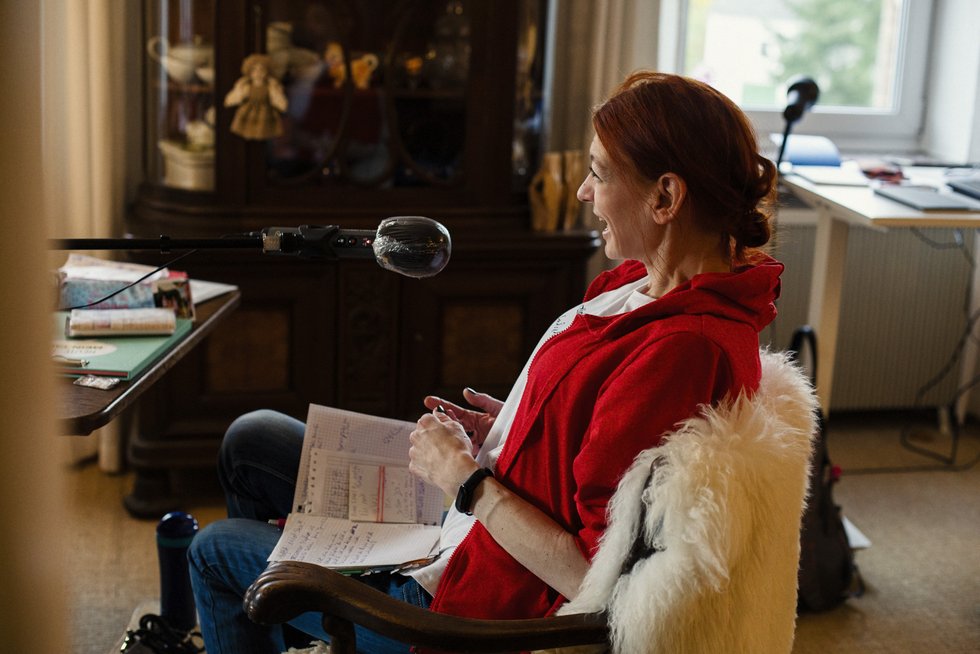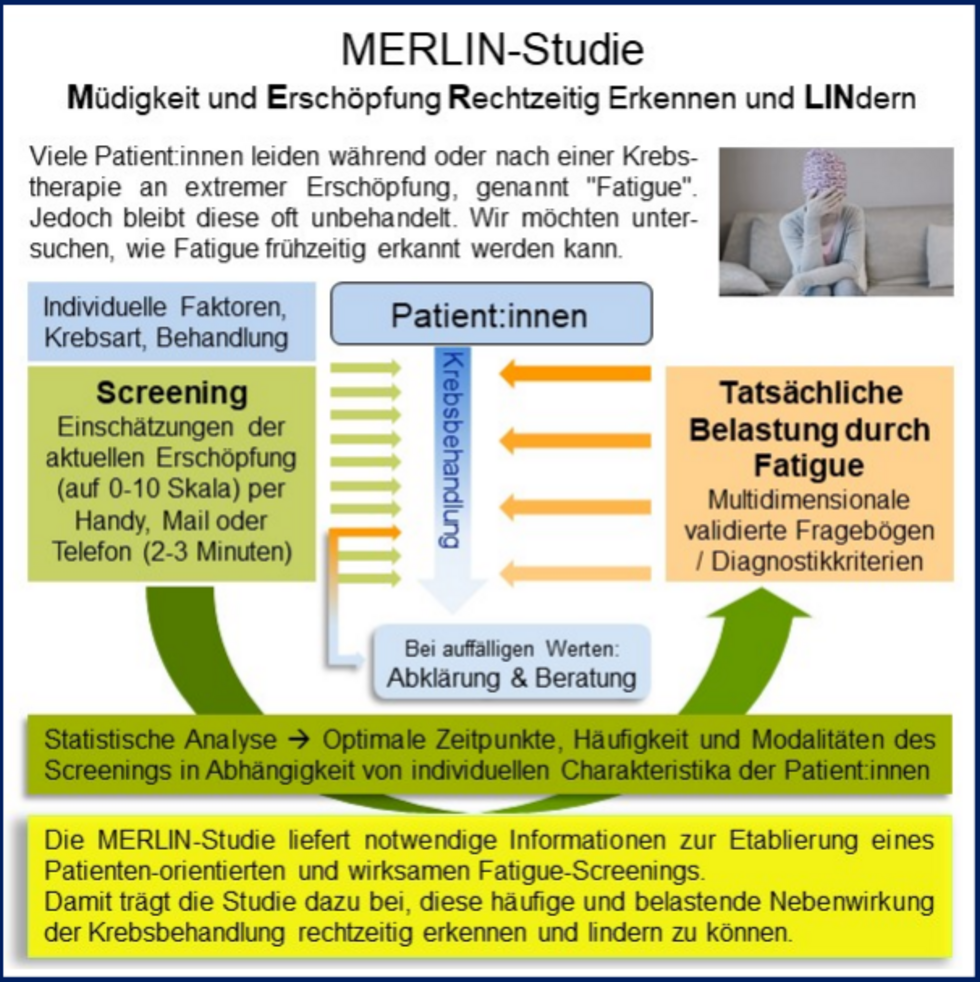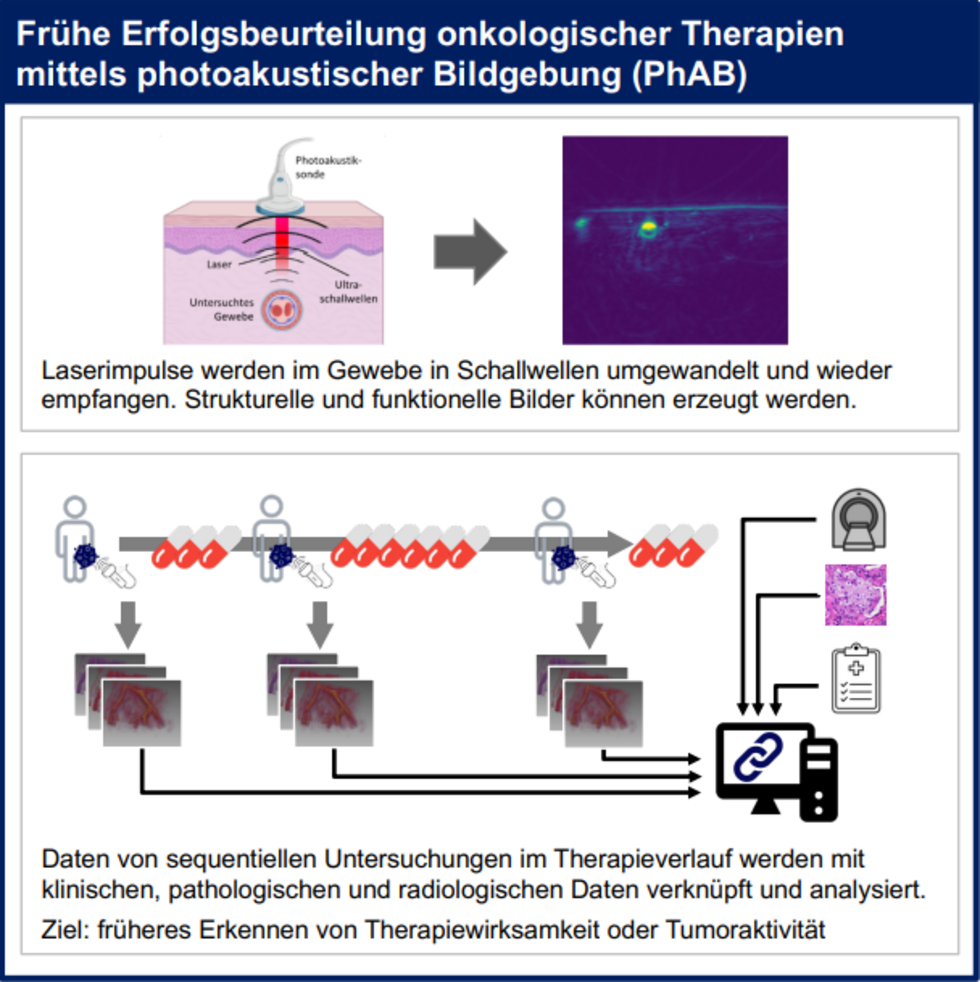Das Familienhörbuch – an audio book for families
The non profit organisation “Das Familienhörbuch” (The family audio book”) enables terminally ill patients with underage children to record a personal, biographic audio book. This project will be introduced to the NCT Heidelberg with scientific accompaniment. 50 patients will be surveyed quantitatively and qualitatively with guided interviews and questionnaires before and after the recording. This aims to capture the possible influence the preparation of the audio book may have on psychosocial stability and personal coping.

With their work the researchers Lars Buschhorn and Bernd Alt-Epping want to promote the audio book project. Furthermore, they want to extend the psychosocial services at the NCT with a modern method and prove its effectiveness. Possible follow-up projects should examine the effects of the audio book on the bereaved. If positive effects can be proven, the preparation of a personal audio book could be implemented into the standard treatment as a therapeutic service.
MERLIN: early recognition and alleviation of fatigue
Many cancer patients suffer under extreme physical or psychological exhaustion during their sickness or treatment. However, this symptom, called cancer fatigue, is often not recognized and therefore not treated. Due to this circumstance, Martina Schmidt, Karen Steindorf, Anne-Katrin Berger and Alexander Haussmann want to conduct a study that shall serve as a scientific basis for a patient-orientated, effective program for the early detection of cancer fatigue in the clinical practise of the NCT Heidelberg.

The MERLIN study will include 300 cancer patients that will be asked to evaluate their fatigue either via app, online or by phone. Additionally, they will be requested to answer approved, broad questionnaires regarding fatigue and other related factors. Participation takes only a little of time and offers an early detection of fatigue with subsequent consulting to alleviate the exhaustion.
Off-Label Therapy App
The NCT Heidelberg is often contacted by patients whose sickness did not respond to established therapies. Frequently, a molecular analysis of the tumor can lead to a personalised therapy recommendation. In the majority of cases however, this therapy cannot be implemented into a clinical trial and involves a drug, that is only approved for a different cancer entity. Before this so called off-label therapy can be conducted, a complex process of application and planning is required. The researchers Andreas Mock, Thomas Deutsch and Veronica Teleanu want to establish a NCT off-label therapy app, that will support the patient in the application process and will serve as an companion throughout the entire therapy. Especially the patient‘s life quality during an off-label will be captured systematically.

Furthermore, the app is meant to render assistance about possible side effects and consulting services during the therapy to strengthen the pateint’s handling of the disease. Moreover, externally treated patients can give feedback to the NCT regarding therapy success and the NCT in turn can contact patients about new clinical trial options. This app will hopefully minimize barriers during an off-label therapy and support patients despite spatial distances.
Early success assessment by Photoacustic Imaging
To assess the possible success of a cancer treatment is a rudimentar element for individual therapy monitoring. Due to this, the researchers Veronica Teleanu, Andreas Geisbüsch, Alexander Seitel and Lena Maier-Hein want to investigate whether conventional procedures capturing tumor changes should be extended by Photoacustic Imaging. For this purpose, 40 patients with tumors near the surface will be accompanied and examined at different time points by Photoacustic Imaging. This novel imaging modality resembles an ultrasound examination, is non-invasive and does not use radiation. Exceptionally, this procedere enables the researchers to make statements about structural and functional changes of the tumor. By this, one can determine changes in the tumor metabolism, for example the oxygen saturation, addtionally to size changes. The metabolism often changes at an earlier stage than size does and thereby serves as a reliable parameter for early success assessment.








